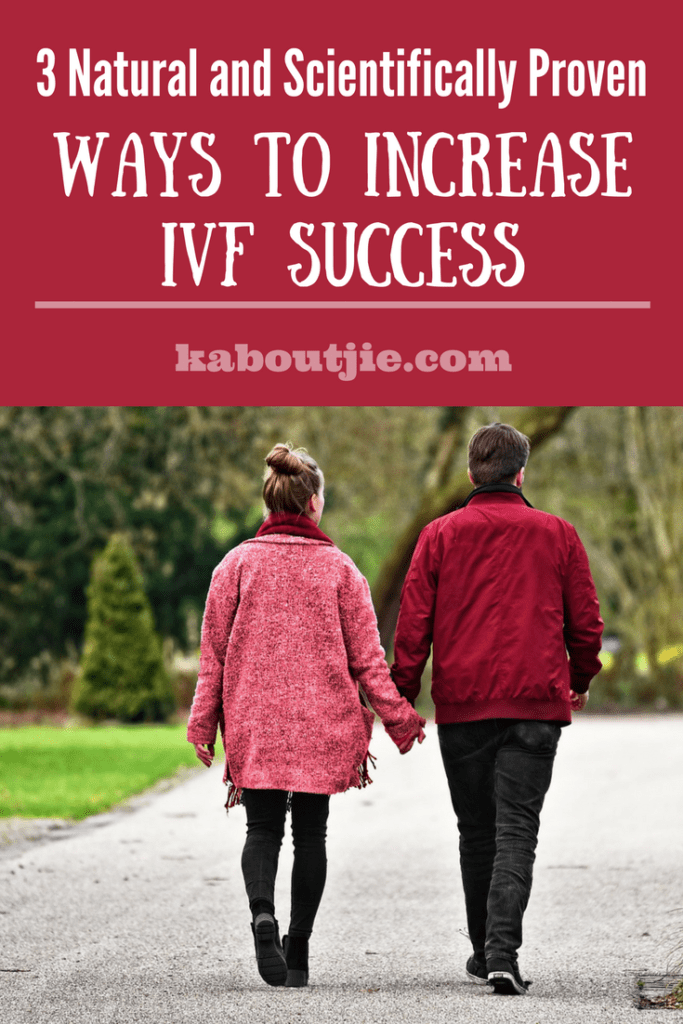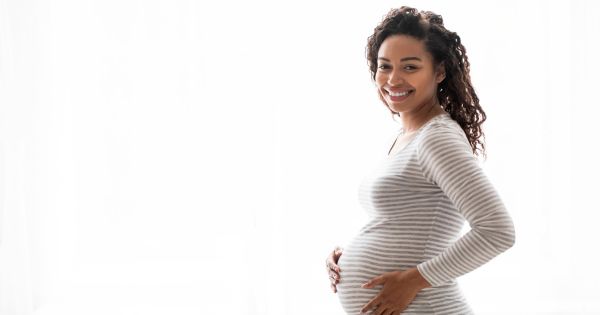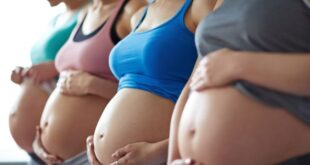Since the late 1990’s, more than 300 thousand IVF deliveries have been reported only in European countries, while the total number of infants born after ART has risen beyond 1 million. At this, an annual pregnancy rate per embryo transfer has reached 45% in some countries, creating tremendous hope for women suffering from infertility.
Though these women are forced to rely largely on luck and fertility specialists’ expertise, they still can improve their chances to conceive by following … no, not those baseless recommendations that can be found anywhere across the Web. Here are some more grounded tips on natural ways to increase IVF success, based on the latest studies and scientific articles.
Eat Like a Mediterranean
According to European Society of Human Reproduction and Embryology, by following a Mediterranean diet prior to attempting fertility, you can double your chances of success.
This statement is supported by a recent study, published at the very beginning of 2018. It covered 244 females trying to conceive, who were asked to describe their usual dietary pattern by answering a questionnaire. The females were grouped based on the degree of their adherence to specific food. After their IVF cycle, it turned out that the group with the highest adherence to the pattern of Mediterranean diet showed the highest rates of pregnancies and live births (50% versus 29% and 48.8% versus 26.6%, respectively, in comparison with the group not sticking to the diet).
So, it looks as if the Mediterranean diet really works for improving your IVF chances of success, if you get it right. How? Here are some facts to help you:
Who can benefit?
The research showed that the best rates were observed in females under 35, while for elder women further research is required, as they are more affected by age factors like hormone changes or general ovarian suppression. Also, obese women are less likely to benefit from the diet when it comes to IVF, though the diet itself can help them improve their health and lose weight. Generally, a BMI of no more than 30 kg/m2 is good for IVF, when coupled with healthy nutrition. Another way to improve your chances is eating like Mediterranean people together with your partner – a preliminary study conducted in the same research center suggested that the Mediterranean diet can enhance semen quality in men.
When to follow?
You should start this diet at least half a year prior to your IVF attempts. Sure, it is never too late to change your daily diet to something healthier, but the effect of more short-term dieting has not been studied.
How to eat?
- Eat plenty of unprocessed fruit, vegetables, legumes, nuts and seeds. Unprocessed is a key word here! And plenty means 5 to 10 servings a day.
- Make whole-wheat bread, pasta and other grain varieties the staples in your daily ration along with fresh greens and fruit.
- Consume fats from olive oils and other healthy fats sources, which are not saturated fatty acids or trans fats.
- When choosing dairy, give preference to cheese and fermented milk products, which are easier to digest.
- Eat more fish and poultry, while reducing pork, beef and other red meat consumption. However, eating more doesn’t mean eating much – plant-based food should still prevail.
- You can add eggs to your diet, but stick to 4 eggs a week at the most.
- Do flavor your meals with herbs and spices, since there are naturally rich in antioxidants and other healthful bioactive substances. Thyme, rosemary, oregano and basil are among the most favorite across Mediterranean regions.
- Yes, you can have your everyday glass of red wine with dinner – but only one or two and only after discussing this issue with your IVF specialists.
- And yes, you should say goodbye to sweets and sugary drinks, replacing them by fruit, green tea or even espresso.
Generally, carbs (bread, pasta, fruit, vegetables) should make up about 60% of your daily ration, fats (mainly olive oil) – 30% and proteins (meat, fish, beans, peas) – only10%. Also, note that the Mediterranean dietary pattern works best when coupled with an active lifestyle.
Get Enough Vitamin D
The sad fact is that vitamin D deficiency affects up to a billion people throughout the world. Moreover, scientists think that its lack has a link with a lower live birth rate in females, trying to conceive through assisted reproduction treatment.
The suggestion was published at the end of last year in Human Reproduction (a respectable medical journal) and based on a review of 11 studies covering 2.700 females. The participants underwent different ARTs, including IVF, and had been monitored for their vitamin D level during the treatment. The studies showed that both live birth and pregnancy rates increased threefold in females with the right level of this vitamin as against participants with its deficiency or insufficiency. Further, the review showed that only 35% of women covered in 11 studies had a sufficient concentration of vitamin D, which makes up 75 nmol/L. This percentage reflects the global trend – for example, in the US more than 30% of the population suffers from a deficit or an insufficient level of vitamin D.
Keeping in mind that the vitamin takes part in cell proliferation regulation, metabolic processes and stimulation of hormones synthesis, it is no wonder that its low level affects IVF prospects badly. Though researchers insist on conducting further clinical trials to get more accurate information about the link between successful pregnancy and vitamin D level, women who want to increase their chances should think about ensuring its sufficient concentration.
Who can benefit?
- Since sunlight is a major source of vitamin D, we are especially prone to its lack in winter months, when sunshine duration is short. While some studies showed that women can expect a better situation with vitamin D through summer to fall due to the larger exposure to warm month sunshine, females planning their IVF in winter or spring may be not so lucky.
- For the same reason, women living in north latitudes suffer from vitamin D deficiency more often than those living in tropical countries.
- You may be surprised, but people with dark skin have a “built-in” natural protection against ultraviolet solar radiation, which triggers the synthesis of the vitamin in the body. Therefore, women originated from Asia, Africa and the Caribbean belong to a vulnerable group, too.
- If you spend little time outdoor, constantly wear clothes that cover most of your body, or don’t go out without a sunscreen, ultraviolet simply has no chance to produce enough vitamin D in your body.
- Besides, obese females are also sensitive to the deficiency.
What to do?
Well, if your fall into one of these groups, it makes sense to check your vitamin D concentration prior to IVF. Corresponding blood tests are widely available and advisable, especially taking into consideration the flipside of the coin – an excessive level of vitamin D can cause calcium metabolism disorders leading to weakened bones, as well as to heart and kidneys disorders. Ask your doctor for running the blood test and vitamin D correction, if necessary.
In the meantime, you can take some steps to avoiding vitamin D deficiency following the recommendations listed below:
- Get enough sunlight. To ensure the normal vitamin synthesis, you should be exposed to the sun with uncovered face, legs and/or arms in the interval from 10 am to 3 pm 2-3 times a week. The average sunbath duration for fair-skinned women should make 5 minutes, while females with dark skin should stay in the sun for at least half an hour. Indoor tanning is also permissible, however with care and caution.
- Add some food containing vitamin D. Ultraviolet-irradiated yeast and mushrooms are appropriate sources along with fish liver oils, oily fish, egg yolks, red meat, liver, plant-based milks and yogurts. Also, some manufactured food comes with a vitamin D fortification, so you can choose this enriched option of your favorite products.
- Ask your doctor about vitamin D supplements. Unfortunately, today’s science still can’t decide upon whether supplements are able to prevent vitamin D deficiency and associated disorders. While some studies confirm their benefits, others deny them or consider the results doubtful. However, the UK National Health Service and some other reputable institutions across the globe recommend the intake of vitamin D supplements to those who are at risk of its deficiency. Since scientists cannot offer other reliable options as for now, your task is to find supplements, which are at least safe – they won’t harm and there is always some hope that they can help.
Anyway, note that the last two ways of obtaining vitamin D don’t negate the need for sunbaths – sunshine is still the best way to get the required vitamin.
May the Acupuncture Be with You!
No kidding, though alternative medicine is often criticized by scientists, acupuncture seems to break through. A couple of months ago, Daily Mail published an article on the latest study of the Czech IVF clinic specialists, reporting about 6% increase in successful IVF outcomes in women using acupuncture. This adds to several previous studies published in Fertility and Sterility, one of the leading medical journals in the field. The studies were conducted by dedicated experts in the USA, Denmark, Australia, China and some other countries and covered various aspects of the acupuncture influence on IVF prospects.
For example, a Danish study showed that the successful pregnancy rate was 13% higher in women who underwent acupuncture treatment on the day of embryo transfer compared to untreated patients. The joint research of German and Chinese clinicians revealed that acupuncture performed immediately after embryo transfer increased the clinical pregnancy rate twofold. And based on a 2016 study of Chinese experts, it was reported that acupuncture boosts ovulation twice as good as drugs like bromocriptine and clomifene.
Though many health institutions officially explain these results by a placebo effect, most scientists agree that acupuncture has no proven side effects either, if performed professionally. Also, the procedure is relatively painless and affordable, while from patients’ point of view it makes no difference whether the increase in pregnancy rate is caused by a placebo effect or better relaxation or actual tissues and organs response to acupuncture. Thus, many IVF specialists believe it can be used as a part of clinical fertility treatment, though further research is required to clarify its efficiency.
Who can benefit?
Supporters of acupuncture believe that this treatment stimulates blood flow to the uterus, significantly increasing chances for fertilized ovum to survive. Besides, it boosts the production of neurotransmitters ensuring pain relief and helps in relaxing the cervix, which is also beneficial for embryo transfer. All these sound like any woman trying to conceive can avail of the treatment.
However, if you have a low pain limit or the very thought of needles stuck in your body makes you sick, it is very unlikely you will be able to relax properly and to benefit from acupuncture. If you have sensitive skin and fragile vessels, the treatment can cause bruises. And certainly, you should avoid the treatment when having any acute disease.
Where to find?
The best way for undergoing acupuncture treatment is finding an IVF center that offers this practice as a part of their adjunct therapy. This ensures good hygiene, qualified practitioners, constant monitoring from your personal physician and, as the result, the highest safety and effectiveness.
Whichever way you choose, remember that the IVF efficiency depends on multiple factors, including your age, fertility causes, your partner’s semen status and so on. Speak to fertility specialists, discuss different ART methods and do your best to follow sound advice!
 Kaboutjie SA Mommy Blogs by Lynne Huysamen
Kaboutjie SA Mommy Blogs by Lynne Huysamen








